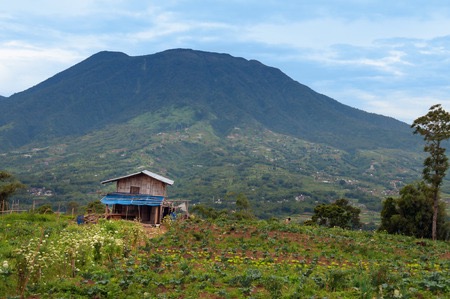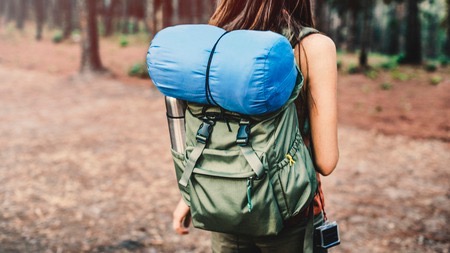Travel to Remote Destinations – Top Tips to Get You Ready

Mount Singgalang on Sumatra island, Indonesia. Photo credit: Miragik
Many people want to travel to remote destinations. We crave an opportunity to test our survival skills and adventurous nature. There are some considerations before cramming everything into your backpack and hitting the trail. The number one reason travelers gave for not successfully reaching their goal – not preparing properly. And we know preparation is more than half the journey when traveling.
- Our number one tip continues to be around research before leaving for your vacation. Do your research to understand how the conditions of your destination may differ from what your body is used to; such as a different climate, various modes of transportation, security, social-political climate and available medical support. Each of these experienced in a new or different manner can cause stress, confusion, and loss of focus.
- Check out the U.S. State Department website for timely information on the current conditions of countries all over the world. Check again right before you are leaving for any updates and changes. While you are traveling their website continues to be a great resource.
- The Centers for Disease Control provides helpful information concerning disease outbreaks and health concerns in different regions. They also provide information on vaccinations and medications (malaria pills) you may need for the areas you are visiting. Your public health department is another resource and may offer discounted treatments compared to a private medical facility. Plan ahead to make sure you receive any vaccinations within the appropriate time and with enough days to recover from any minor side effects.
- Another valuable resource is the Association for Safe International Road Travel where you will find information about the road safety of your destination. Road signs, rules and conditions will vary from country to country. Ensure that everyone who wants to drive on your vacation is ready for the unfamiliar driving conditions. It is best to assess your true feelings before getting behind the wheel; what seems like fun while planning can be traumatic in real life.
- When planning your trip, remember to take into account the fact that it could take several hours or even days to receive proper medical care depending on the remoteness of your destination. Ask travelers who have been to the area for advice and let your travel insurance company know where you are going and the conditions; ask if they cover the area and type trip you are planning.

Be prepared when heading out alone. Photo credit: RawPixel
- Once you’ve put a plan together, be sure to leave a list of your plans with friends and family at home. Try to schedule times when you will check in so they can pick-up on where you are in your itinerary if something goes wrong. It is so important; the likelihood that something will happen is slim, but when something happens it can be very concerning. One of my best girlfriends always advised me, “leave a trail so someone can find you!”
- Here’s another way to leave a trail. If you are staying at an inn or hotel, tell the front desk if you plan to go exploring and approximately what time you plan to return.
- Sharing your itinerary or in my friend’s words, “Leave a trail so someone can find you!” is advice for both men and women. Accidents, crimes, and mishaps do not discriminate – anyone, any age, race or gender can need help when traveling.
- Bring along a flashlight, emergency blanket, and area map just in case you become lost or injured and have to wait for help to arrive.
- Consult with your doctor before traveling to a remote place if you have a condition that may worsen by a change in your daily routine and familiar environment.
- And, keep in mind, if you are purchasing travel insurance, it may be invalidated if you go against the medical advice of your doctor.
- Make sure any of your needed medications are not prohibited in the country where you are traveling. Carry medical documentation with you as well. Double check this information because a misstep could land you in jail.
- Make sure you are up to date on all needed vaccinations and keep in mind that you may not be able to get all your vaccinations at once but instead over time.

A medical professional can help determine steps to keep you healthy when traveling. Photo credit: Mark Adams
- Traveler’s diarrhea is a common side effect when eating foods that contain bacteria unfamiliar to your body. It can lead to infections and other illnesses. It is critical to wash your hands before eating and after using the bathroom. Avoid foods such as salads and raw, room temperature foods, meat from local wild animals such as bats, fish, and food products stored improperly. Drink bottled water and sodas and avoid drinking tap water or from water fountains. An upset digestive system is one of the most common problems travelers to remote destinations face. Bringing along bags of nutritious snacks such as dried fruit and nuts to keep your energy leave up when hiking and eliminate the urge to grab an unfamiliar snack. To help prevent and calm stomach issues, we have used a product call Travelon which when taken in advance can prevent or lessen stomach problems.
- Be wary that many bodies of water might not be safe for swimming. Although local residents may swim in the water, it is best to check on the conditions before you dive-in.
- Bites and stings from insects and wild animals are another serious health concern. Check your clothes and shoes for bugs before getting dressed. Do not handle unfamiliar snakes or insects.
- Some animals may carry rabies. Be aware that stray and feral dogs, cats, monkeys and other mammals could be infected.
- Bodies of water might not only be contaminated, but they could also contain dangerous animals.
- Check out this list of suggestions to include in a personal first aid kit: http://patient.info/health/advice-for-travelling-to-remote-locations. (Located at the bottom of the page.)
For more information visit the website we used as references for this article:




0 Comments